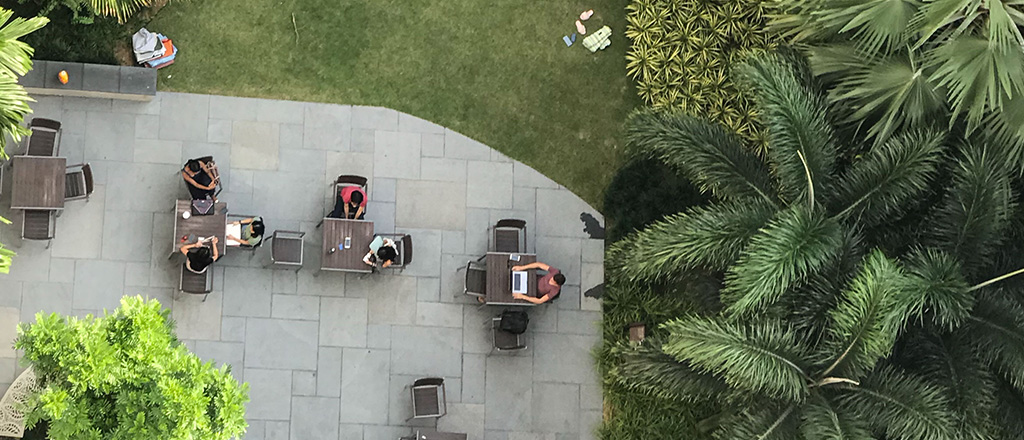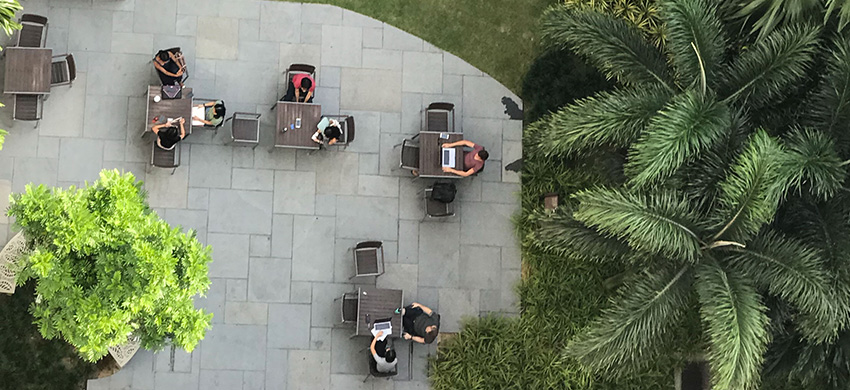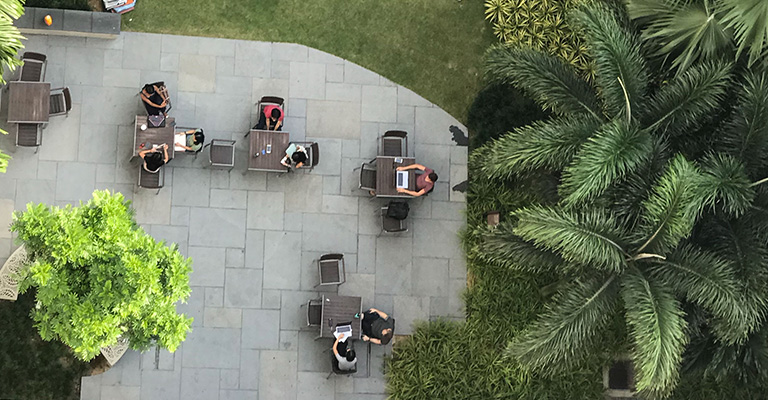People
Currently, sexual misconduct is handled by the Student Affairs Office. More details about this role as it relates to the disciplinary process is located here. The Sexual Misconduct Coordinator is also responsible for leading the prevention and outreach efforts on campus, and overseeing the Survivor Support Advisors. Students who want to get engaged in these issues can reach out directly to the Sexual Misconduct Coordinator.
There are multiple investigators that can be appointed to work on sexual misconduct cases. An Investigator will be assigned to each case based on availability and lack of potential conflicts of interests. Investigators undergo a training programme facilitated by the Sexual Misconduct Coordinator. The programme includes training on how to question students in a sensitive and supportive manner, understanding the disciplinary process and understanding the requirements of an Investigator’s report.
There are multiple chairpersons that can be appointed to work on sexual misconduct cases. A Chairperson will be assigned to each case based on availability and lack of potential conflicts of interest. Chairpersons undergo a day-long training program facilitated by the Sexual Misconduct Coordinator. The program includes training on how to run a disciplinary hearing, how the sexual misconduct policies and disciplinary procedures work, as well as information on how to approach the issue of sexual misconduct with sensitivity and tact.
You can pick any staff or faculty member to serve as your advisor. You cannot select off-campus advisors. You are encouraged to select a faculty or staff member who has been trained in the Yale-NUS Sexual Misconduct Policies and Procedures. You may also choose to switch advisors, even after the disciplinary process has been initiated, if you feel that your current advisor is not providing adequate support.
Any student can speak to Ashley Yong, Sexual Misconduct Coordinator, and/or their Assistant Dean about these issues. In all cases, the Sexual Misconduct Coordinator is noted as the point person, as they are the one to issue No-Contact Orders. If the student(s) involved have shared their case with their Assistant Dean, the Sexual Misconduct Coordinator can work together to support the student with class issues.
Procedure
Case documents are any pieces of evidence which have been made available to the Investigator, Sexual Misconduct Coordinator, hearing panel and/or Chairperson. This includes the Reporting Letter, the Statement of Issues, the Response Letter, the Investigator’s report and witness statements.
Case documents are shared with both the reporting and responding parties because it is important that each party is informed of the perspectives that the other parties will bring into the hearing. This allows the reporting and responding parties to come to the hearing fully prepared and with full knowledge of the issues in the case.
The deadline for the Investigator to submit their report may be extended if, for example, a large number of students are involved and the Investigator requires more time to conduct interviews and gather evidence.
The balance of probability standard means that a panel is satisfied an event occurred if the panel considers that, based on the evidence, the occurrence of the event was more likely than not. This is equivalent to a “preponderance of evidence” standard used in the United States. Balance of probabilities is the way this standard is described in Singapore.
As a general rule, evidence of the reporting and responding parties’ sexual histories is irrelevant in proving or disproving a sexual misconduct allegation. Evidence of prior consensual sexual activity between the reporting and responding parties also will not constitute proof of consent. Evidence of parties’ prior circumstances such as mental health, substance abuse or counselling records is also generally irrelevant to the reporting or responding party’s state of mind at the time of the alleged sexual misconduct.
Any information on your prior circumstances such as mental health, substance abuse or counselling records can only emerge from your self-disclosure. No panel member, Chairperson or Investigator will request for such information from the Counselling Centre. Any information disclosed to the Counselling Centre in confidence will remain strictly confidential.
You should make an effort to get all relevant information to the Investigator before their report is submitted.
If new information emerges at a later stage of the disciplinary process, you may still request permission to submit the new information to the hearing panel for its consideration, but you must provide good reasons why that information was not or could not be obtained earlier.
The Chairperson has full discretion to admit or reject any new information. For example, if admitting the new information would disrupt the disciplinary process or be unfair to the other party, the new information may be rejected.
A sample hearing schedule is as follows:
- The Investigator presents their findings to the committee (students not present).
- The reporting party and their supporting witnesses present their evidence.
- The responding party and their supporting witnesses present their evidence.
- The reporting party may submit questions for the responding party and their supporting witnesses.
- The responding party may submit questions for the reporting party and their supporting witnesses.
- The Chairperson may recall any individual who has already given their evidence to share additional information and/or answer additional questions.
The Chairperson declares that the hearing is concluded.
The Chairperson of the disciplinary hearing may depart from the hearing schedule or adjourn the hearing to accommodate unexpected scheduling needs. The Chairperson will conduct the hearing as they consider appropriate, taking into account the interest of all parties involved.
Please report any issues with timing to the Sexual Misconduct Coordinator. They will be able to follow up with the Chairperson and Investigator to get more information about the cause of the delay. Please note the general timeline for a case, stated here.
Outcome
You can bring an appeal if you have any cause for disagreeing with the disciplinary panel’s decision. Your grounds for appeal would be the reasons why you disagree with the disciplinary panel’s decision. Some examples of grounds on which an appeal may be brought include:
- procedural error in the disciplinary hearing process;
- new evidence coming to light;
- to contest the severity of the sanctions; or
Records relating to the allegation and the disciplinary hearing include the Reporting Letter, the Response Letter, the Investigator’s report and the Outcome Letter. As hearings are recorded, a copy of the recording is also kept.
Case records are only accessed under very specific circumstances. Only the following people may gain access to the records of a case: (1) the Sexual Misconduct Coordinator, (2) the Vice President of Academic Affairs (if an appeal is filed), (3) an executive in the Dean of Students’ office who will keep the records uploaded and password-protected, (4) the Chairpersons of any future disciplinary hearings that involve the same responding party, and (5) the Dean of Students.
Lastly, the recording of the case is solely for record-keeping purposes. Students are not able to receive access to the recording.
Data and records from the case will be kept on the College’s Sharepoint database. Folders in Sharepoint can be configured to grant specific access to individuals who are permitted to access the records of a case.
If the hearing panel finds the responding party not responsible for violating the sexual misconduct policy, all records associated with the allegation and the disciplinary hearing shall be maintained for the duration of the responding party’s enrolment at Yale-NUS College, but shall be destroyed upon their departure from the College either by graduation or permanent cessation of study.
If the hearing panel determines that the responding party is responsible for violating the sexual misconduct policy, all records associated with the allegation and the disciplinary hearing shall be maintained on file for 7 years by the Student Affairs Office, which accords with best practices at peer institutions. Information on the accessibility of those files is stated above.
The Responding Party shall vacate the campus immediately, notwithstanding any intention to appeal the panel’s decision. If at the end of the appeal timeframe the sanction remains a suspension, the Responding Party shall be escorted by their advisor, Assistant Dean, or by Security, to retrieve any essential belongings from their room. The Responding Party may make arrangements with their Assistant Dean or other designated staff member to return to campus at a subsequent date/time to pack their room. In certain cases, the Responding Party may need to vacate the campus while awaiting the results of their appeal.
Suspended students are not permitted to (a) engage in any Yale-NUS activities (either on or off campus); (b) access campus resources; or (c) be physically present on campus, even to visit friends during the period of suspension.
The panel may take into account any factor which it deems relevant. Relevant factors may include:
- the severity and frequency of the offence;
- the responding party’s level of cooperation and honesty during the investigation;
- the responding party’s general behaviour with regards to upholding the policies outlined in the Student Code of Conduct and the Sexual Misconduct Code; and
- Previous instances in which the responding party has been found responsible for violating the Sexual Misconduct policy.
If you are suspended from the College as a result of a sexual misconduct case, the note “suspension” will appear on your transcript during your suspension period. After your suspension period, the semester will appear as blank with the semester date as the heading. If you are dismissed, your “Programme Status” on your transcript will read “Dismissed from University on [date dismissed].”
As soon as a sexual misconduct case is filed, a no-contact order is initiated between the two students. This no-contact order may continue on after the resolution of the case as well. In situations in which students are in the same classes, the Associate Dean of Students, will work directly with the students and proactively with Registry to ensure that there are no class conflicts. Any questions can be directed to the Sexual Misconduct Coordinator.
Involving other parties
Yale-NUS procedures and processes will apply in these scenarios. The responding party will be offered support and an advisor. The Investigator, Chairperson, and committee members will be Yale-NUS staff and faculty, except in the case of serious incidents involving DDP/CDP students.
Yes, these investigations can happen concurrently, unless Yale-NUS is instructed by the police to cease their investigation.
The case would be taken through the NUS judicial process. However, support at Yale-NUS is available and we are able to be present and support any Yale-NUS student who is filing a case with NUS. Please reach out to Student Affairs Office if you would like more information on filing a case against an NUS person.
Miscellaneous
DDP students will be heard by a committee that jointly consists of representatives from Yale-NUS and the NUS Faculty of Law.
Confidentiality is extremely important in matters as sensitive as allegations of sexual misconduct. Confidentiality is also especially important given that Yale-NUS is a small institution with a well-connected student body. Students involved in disciplinary matters related to sexual misconduct will already be under considerable stress and should not be further subject to gossip, harassment or retaliatory acts.
You should share this information directly with the Sexual Misconduct Coordinator or your advisor. We take confidentiality extremely seriously and will follow up with the parties involved. Follow-up action can take the form of disciplinary proceedings.
Any students who want to talk about issues of sexual misconduct on campus can approach the Sexual Misconduct Coordinator. However, the College will not be able to discuss any particular case with a student who is not a reporting or responding party or a witness called for the case.
No. Filing a sexual misconduct case will not impact the reporting party’s ability to engage in campus life in any way. Other offices around campus are also not informed about sexual misconduct cases unless an office is affected by a sanction which has been imposed (i.e. the student is unable to go for study abroad), in which case only the outcome of the disciplinary hearing will be shared with that office.




